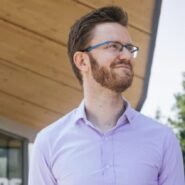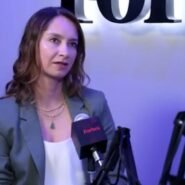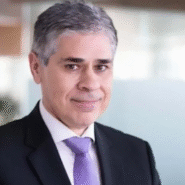Diego Luciani, born on October 11, 1972 (53 years old), is a lawyer recognized in Argentina for having led the trial against former president Cristina Kirchner, a case that concluded with a ruling against the former vice president, who must serve six years in prison. A prosecutor specialized in criminal law, he completed a doctorate to take on the most important trial of his career.
Luciani, who went through several cautious months after pushing forward the trial against Kirchner, was described by many as a “brave” lawyer who stood “against power.” The “Vialidad” case was the one Luciani carried forward to accuse the former president of corruption, public tenders, money laundering, overpricing, and favoritism—areas in which he specialized during his doctoral studies in Spain.
A case that clearly changed Luciani’s life. A full 180° turn alongside his colleague Sergio Mola, who together accused Kirchner of multiple charges. In mid-June, the justice system ruled that the former vice president must serve six years in prison, marking the resolution of a historic case for Argentina, with several subsequent developments.
Why is it important to point out that Luciani’s life changed? Since the prosecutor became publicly known, he has often admitted that people have applauded him for his work and, in various situations, even tried to offer him unpaid services—such as free meals at a restaurant. Ever since presenting his closing argument against CFK, he has not been the same. Neither he nor his professional career.
He graduated as a lawyer at 23 from the University of Buenos Aires. Before finishing his degree, he had already entered the judicial system to take his first steps. He then deepened his career through teaching and specialized in criminal law. He began teaching at various institutions and universities on subjects related to criminal law, criminal procedure, and different diploma programs on “organized crime,” in addition to similar-level courses. He also has several scientific and legal publications related to crimes, criminality, and fraud.
Doctorate and Luciani’s closing argument
With the goal of having as many tools as possible to argue his case and defend himself, before the trial against CFK, Luciani completed a doctorate in Spain on “corruption and public contracting.” Months later, he passed the exams in Europe and presented his published doctoral thesis: Corruption in public contracting.
The Public Prosecutor’s Office played a vital role for Luciani. Prosecutors strongly supported the lawyer, creating a synergy within the judicial sphere that allowed him to carry out his duties without setbacks. In 2009, Luciani began working in a prosecutor’s office, referring to the first instance in which crimes are investigated—an area he had focused on throughout his career.
Reactions from both prosecutors after the ruling against CFK
Without hesitation and with the same intensity shown during the case, the statements from Mola and Luciani after the six-year prison sentence against Kirchner were harsh: “insufficient.” Both prosecutors had demanded a 12-year prison sentence with immediate arrest. What they highlighted was that the justice system analyzed “the system of corruption developed and planned by the former president.”
“Acts of corruption have a strong negative impact on the democratic rule of law,” emphasized both prosecutors in a written statement, later adding that “those convicted appropriated funds that were scarce or missing, which directly affected the most basic rights of citizens.”
Satisfied? The right word would be “in agreement.” Both Mola and Luciani supported the court’s decision but expressed dissatisfaction with the number of years assigned to Cristina Kirchner’s sentence.
What matters most is that Diego Luciani, from now on, will be a name that does not go unnoticed. A lawyer specialized in criminal law who presented a closing argument condemning Cristina, interrogated former president Alberto Fernández, and began to be recognized in public for his actions in the CFK case. It also came to light that the prosecutors demanded the restitution of a certain amount of money involved in the corruption scheme.
His specialization in human trafficking, crimes, fraud, favoritism, and money laundering allowed Luciani to draw on various fields to face the most significant trial of his career—and one of the most important in the country’s history. A prosecutor who, on August 22, presented his closing statement condemning the former vice president for multiple corruption charges, all encompassed under the Vialidad case.
Three years later, the justice system issued the sentence against Cristina, with Luciani and Mola at the center of the case due to their roles.







